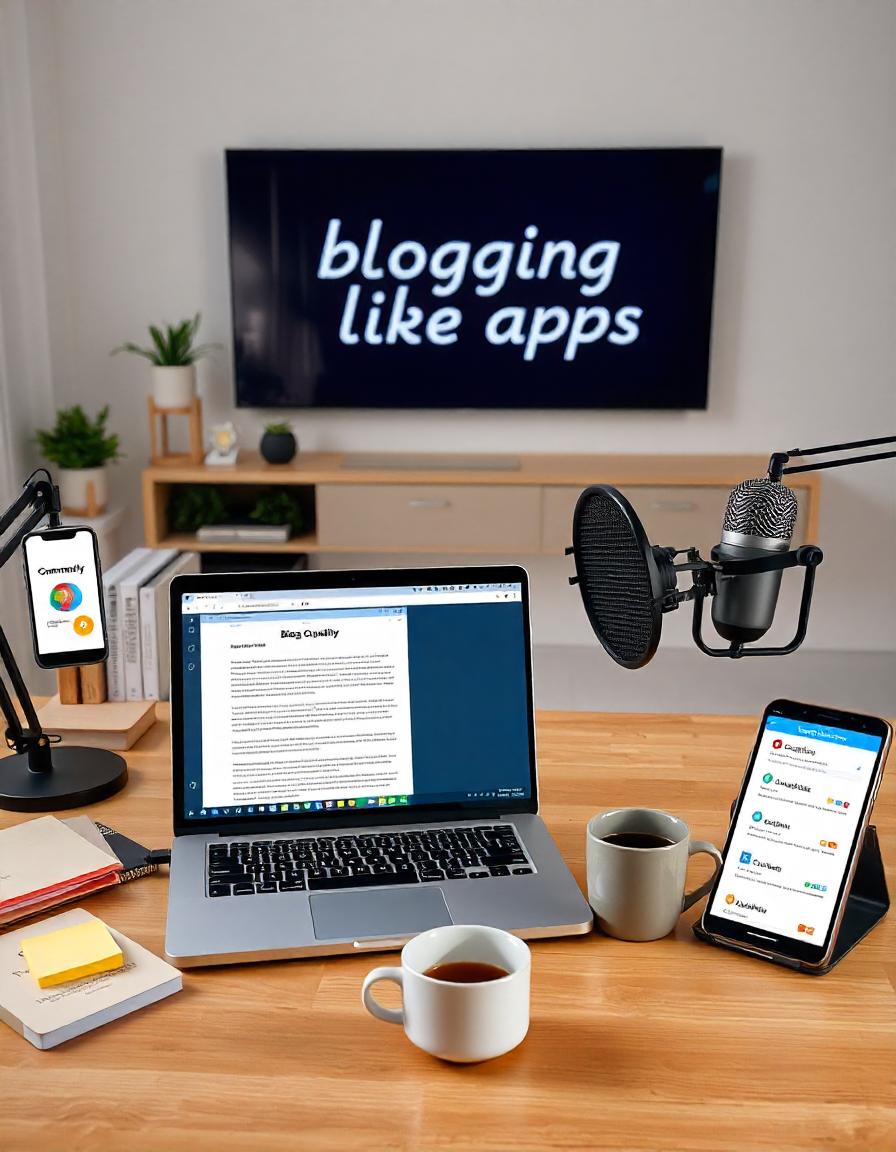Blogging And SEO: A Powerful Combination For Digital Success
In the digital era, blogging has become one of the most effective ways for businesses and individuals to build their online presence. However, having great content isn’t enough to guarantee success. Without proper optimization, your blog may remain buried beneath the billions of websites online. This is where SEO (Search Engine Optimization) comes into play. By leveraging SEO techniques, bloggers can improve their visibility on search engines, attract more traffic, and engage a wider audience.
Make Money in 7 Days as an Entertainment Blogger and Affiliate Marketer – The Easy Way
This article delves into the importance of blogging and SEO, and how to effectively combine both to drive traffic and increase online visibility.
What is SEO and Why is it Important for Blogging?
SEO refers to the practice of optimizing your website and content to rank higher on search engine results pages (SERPs). When someone searches for a specific keyword or phrase, search engines like Google aim to provide the most relevant results. By optimizing your blog posts for SEO, you increase the likelihood of your content appearing higher in search results, which translates into more organic traffic.
SEO is crucial for bloggers for several reasons:
- Increased Visibility: Higher search engine rankings lead to more visibility, helping potential readers discover your content.
- Organic Traffic: Organic traffic is the traffic that comes to your website naturally through search engine results, rather than through paid advertisements. SEO is the most effective way to attract this type of traffic.
- Better User Experience: SEO practices such as optimizing load times, improving mobile responsiveness, and making content easily navigable contribute to a better user experience, which ultimately leads to longer engagement and lower bounce rates.
- Cost-Effective Strategy: Unlike paid ads, SEO is a long-term strategy that doesn’t require ongoing investment once the optimization is in place. Over time, your blog can continue to attract traffic without the need for ongoing payments.
Make Money in 7 Days as an Entertainment Blogger and Affiliate Marketer – The Easy Way
How to Optimize Your Blog for SEO
Now that we understand the importance of SEO, let’s explore how to optimize your blog posts for better search engine rankings. Here are several essential SEO practices to implement on your blog:
1. Keyword Research
Keyword research is the foundation of SEO. By identifying the right keywords related to your topic, you can optimize your content to match what users are searching for. Tools like Google Keyword Planner, Ahrefs, and SEMrush can help you find relevant keywords with good search volume and low competition. Once you have your keywords, use them naturally in your blog post, especially in the title, headings, introduction, and conclusion.
How to Earn Money Online – The Ultimate Guide to Financial Freedom!
2. Create High-Quality Content
Content is king, and search engines prioritize high-quality, informative content. When writing blog posts, ensure that your content is relevant, well-researched, and answers the questions your audience is likely to have. A blog post that thoroughly covers a topic and provides valuable insights is more likely to be ranked higher by search engines.
In addition, content length can influence SEO rankings. Long-form content (1,500+ words) tends to rank better, as it is perceived as more comprehensive. However, make sure your content is well-structured and easy to read. Break it up with subheadings, bullet points, and images to make it digestible.
3. On-Page SEO Optimization
On-page SEO refers to the optimization of individual blog posts to help them rank higher in search engines. Here are several on-page SEO elements to focus on:
- Title Tag: The title tag is one of the most important SEO elements. It should include your primary keyword and be no longer than 60 characters.
- Meta Description: A compelling meta description (under 160 characters) encourages users to click on your post. It should briefly describe the content while including your target keyword.
- URL Structure: Keep your URLs short, descriptive, and keyword-rich. For example, www.yoursite.com/how-to-optimize-blog-posts-for-seo.
- Headings and Subheadings: Use H1 for the main title, and H2, H3 for subheadings. This structure not only makes your content easier to read but also helps search engines understand the organization of your content.
- Internal Linking: Link to other relevant blog posts or pages within your website. This helps search engines crawl your site and improves the user experience by providing additional resources.
- Alt Text for Images: Ensure that all images have descriptive alt text, as search engines cannot read images but can read alt text. Use keywords where appropriate.
Make Money in 7 Days as an Entertainment Blogger and Affiliate Marketer – The Easy Way
4. Mobile Optimization
With the increasing number of mobile users, it’s essential that your blog is mobile-friendly. Google uses mobile-first indexing, meaning it prioritizes the mobile version of your website for ranking. Ensure that your blog theme or template is responsive, meaning it adjusts automatically to fit different screen sizes. A mobile-friendly blog provides a better user experience and improves SEO rankings.
5. Page Load Speed
Page load speed is a critical factor in both user experience and SEO rankings. Slow loading times can lead to higher bounce rates, where users leave your site before it fully loads. Google and other search engines take load times into consideration when ranking pages. Use tools like Google PageSpeed Insights to test your blog’s speed and make improvements such as compressing images, minimizing HTTP requests, and leveraging browser caching.
6. Backlinks
Backlinks (or inbound links) are links from other websites that point to your blog. Search engines view backlinks as votes of confidence in the quality of your content. The more high-quality, relevant backlinks you have, the higher your blog will rank. Focus on building backlinks through guest blogging, reaching out to influencers in your niche, and creating shareable, link-worthy content.
How to Earn Money Online – The Ultimate Guide to Financial Freedom!
7. Regular Updates and Fresh Content
Search engines favor websites that are regularly updated with fresh content. Regularly publishing new blog posts and updating old ones signals to search engines that your site is active and relevant. Refresh old blog posts by adding new information, updating statistics, or expanding on previous content.
Measuring SEO Success
After implementing SEO strategies, it’s important to measure the effectiveness of your efforts. Use tools like Google Analytics and Google Search Console to track metrics such as:
- Organic Traffic: The number of visitors coming to your blog through search engines.
- Bounce Rate: The percentage of visitors who leave after viewing only one page.
- Keyword Rankings: How your blog ranks for targeted keywords.
- Click-Through Rate (CTR): The percentage of people who click on your blog post after seeing it in search results.
By monitoring these metrics, you can assess the performance of your SEO strategy and make necessary adjustments.
How to Earn Money Online – The Ultimate Guide to Financial Freedom!
Blogging and SEO go hand in hand. While blogging helps create valuable content for your audience, SEO ensures that your content gets discovered by search engines and reaches your target audience. By optimizing your blog posts for SEO, you can increase your visibility, attract more organic traffic, and ultimately achieve greater success in the digital world. Whether you’re a beginner or an experienced blogger, consistently applying SEO strategies will help you build a sustainable online presence and grow your audience.







